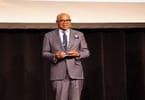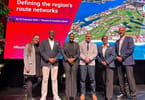Overtourism was a big talking point just a month ago. Today under tourism is the biggest threat to many travel and tourism-dependent economies.
There is no doubt that people working in the tourism industry are under a great deal of stress. Not only must they provide customer service at all levels, but also travelers are anxious and often take out their frustrations on tourism employees, especially those in the front line
Until recently the number of travelers continually increased and there was a further internationalization of the market. Then in the space of a few months, Covid-19 turned over-tourism into under-tourism and tourism employees began to wonder if they would have jobs. Airlines have cut the number of flights drastically, hotels that were full are now almost empty, and multiple nations have created national or regional curfews. From major food centers such as France and Israel closing restaurants to the suspension of visitors to the Disney Properties, the tide of over-tourism has changed and now all who work in this the world’s largest industry worry about industry survival Yesterday’s internationalization meant that the tourism industry’s employees had operated in a multi-cultural and multi-lingual work environment. Now internationalization has come to mean the transfer of the Coronavirus from one nation to another as country after country closes its borders to foreigners and demands curfew for its own citizens returning from abroad.
Today those working in the travel and hospitality industry operate in “an age of rage” or “an age of fear”.
It may no longer be an exaggeration to state that to travel is to be frustrated, angry, or anxious. Tourists suffer from cumulative traumas. Often feeling mistreated by airlines or on the road; they arrive at their place of lodging tired and hungry, confused and ready to snap at almost anyone. Often by the time they reach their destination and have contact with lodging or restaurant professionals they are unfairly ready to explode at the smallest failure or thing that goes wrong.
This increase in travel-rage has caused a reciprocal effect on the part of tourism professionals who must deal daily with angry visitors and guests. Indeed when we consider the long hours tourism professionals must work, their need to smile no matter how they may feel emotionally or physically, and the pressure that they are under to meet time demands, we all must marvel at their ability to “stay cool under fire.”
The world of rage must be a concern to tourism professionals. Being human beings hospitality professionals also are susceptible to the disease of rage and this reciprocal rage has given us a new term: “Tourism/Hospitality Professional Employee Rage (TPER).” Sociologically, we can place TPER midway between issues of violence in the workplace and employee rudeness. TPER is more than an issue of poor customer service. TPER is a volcanic type anger that lies just below a person’s psychological surface. It is anger combined with frustration and exhaustion that manifests itself among people who must constantly serve the public and often feel under-appreciated. TPER might also occur with those who are connected to the travel and tourism/hospitality industry, but do not see themselves as directly part of the industry. Examples of such people are police officers working in high tourism areas, people working in bus or train stations, and non-front line hotel and attraction employees.
In an age when the government ask for social distancing and yet in a profession where social distancing is almost impossible many tourism employees are frustrated and see themselves as underpaid and under-appreciated. Because TPER can destroy a place of tourism community’s reputation it is essential that supervisors know TPER’s signs and begin to deal with the problem. Here are some signs and suggestions that may help.
Every hotel/motel supervisor ought to know the every aspect of his or her tourism location’s jobs and understand those job frustrations on a first hand basis. That means that everyone who works in hospitality ought to spend at least one day at each on-property task, such as being a waiter or waitress, working as a bellboy, being at a cashier’s booth, cleaning rooms and doing repairs. Only after doing the job can managers begin to offer real solutions to issues of TPER
Everyone who works at a place of lodging, a restaurant, or an attraction deserves to have training in the science of customer service. Training should not only be for those holding front line jobs. In reality everyone who works at a hotel/motel has some contact with the public. Often people who suffer TPER have been insufficiently trained in the relationship between good customer service and their job. All hotel/motel employees deserve the right to be educated in such techniques as:
- The art of smiling
- Voice modification and tonality
- How to make positive first impressions
- How to handle frustration, personal anxiety and anger
This latter point is especially important in an age of contagious diseases and great financial uncertainty
In this current age, it is necessary to offer not only to support from supervisors but also from colleagues. Today those working in the tourism industry need more psychological support and collegial understanding than ever before. Hospitality professionals need to relieve each other’s stress, and managers need to help by providing breaks in the work schedule, playing soft music, and encouraging during non-busy hours hand and breathing exercises. It is also essential that all working in the tourism and visitor industry have access to medical advice and personnel.
In this new age of stress and uncertainty, it is wise to organize gab sessions. Often employees have no one to talk to about their professional frustrations and difficulties. Providing sessions where people can share their “war stories” and exchange ideas on how they can better serve the public by serving themselves can go a long way in eliminating the fears and frustrations that so many are now feeling.
We also need to make sure that our tourism professionals work in well lighted and temperature controlled work areas. It is hard enough to deal with tired and frustrated guests under the best conditions, but working in the summer heat or winter’s cold is sure to increase the stress and anger levels.
We must never forget that our guests are not our enemies. Often too many tourism professionals forget that the customer is the reason we have a job. While employees need to vent, it is essential that there be a means by which this venting can be channeled into positive avenues. Employee professional gab sessions ought to be an opportunity to seek solutions to problems and to re-enforce the fact that hotel/motel engineers are part of a team.
The travel and hospitality industry can be an exciting industry in which to work or it can be a frustrating one. By working together and helping each other deal with issues of stress and frustration, we can prevent tourism employee rage, fears, and anxiety from destroying workplace morale and provide the caring that our customers need in an age of pandemics and economic uncertainty.
More information on how Dr.Peter Tarlow and the Rapid Response System of Safertourism can help visit www.safertourism.com
WHAT TO TAKE AWAY FROM THIS ARTICLE:
- From major food centers such as France and Israel closing restaurants to the suspension of visitors to the Disney Properties, the tide of over-tourism has changed and now all who work in this the world's largest industry worry about industry survival Yesterday's internationalization meant that the tourism industry's employees had operated in a multi-cultural and multi-lingual work environment.
- That means that everyone who works in hospitality ought to spend at least one day at each on-property task, such as being a waiter or waitress, working as a bellboy, being at a cashier's booth, cleaning rooms and doing repairs.
- In an age when the government ask for social distancing and yet in a profession where social distancing is almost impossible many tourism employees are frustrated and see themselves as underpaid and under-appreciated.






















